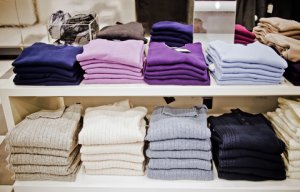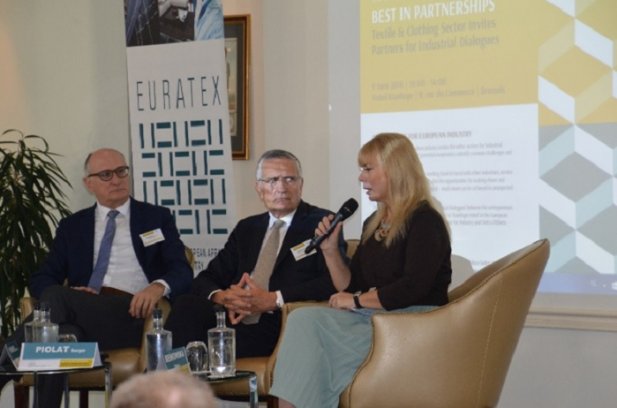
New project to focus on regional skills partnerships
Euratex hosted its international conference devoted to inter-sectorial partnerships to boost European manufacturing last week.

13th June 2016
Knitting Industry
|
Brussels
Euratex, the European Apparel and Textile Confederation, hosted its international conference Best in Partnerships last week, devoted to inter-sectorial partnerships to boost European manufacturing. The textile and fashion industry invited other sectors to identify common challenges and discuss new areas of cooperation.
The European Commissioner for Internal Market, Industry, Entrepreneurship and SMEs Elżbieta Bieńkowska addressed the audience in her key note. The Commissioner underlined that the European institutions are expecting full engagement of industry, because knowledge about the companies' needs should drive the development of new policies and programmes.
Euratex’s President Serge Piolat emphasised that textile and fashion sector is appreciating the European Commission’s willingness to build a dialogue with the industry. Euratex proposed a concrete action plan to the European Commission to strengthen internationalisation of the SMEs, assure fair conditions for the European companies, provide better access for SMEs to EU research funds and boost innovation investments at the regional level through RegioTex initiative.
Ietje Klaver, sales director at Ecoalf, the Spanish sustainable fashion brand making all its products with recycled materials, discussed the challenges of the circular economy with Isabelle Spiegel, a director in charge of Environmental Business Line in Arcadis – a global design, engineering and management consultancy.
The circular economy is a concept of closing the loop of product lifecycles which is beneficial for the environment and profitable for companies. Both speakers agreed that to build circular economy in Europe, silos between different sectors should be broken. With companies’ creativity and innovation, the waste of one industry can become the raw material for the other.
Europe is a number one destination for millions of tourists every year. The European identity is attracting visitors and making them buy goods made in Europe. The quality and style are at the heart of European products. Can players within the tourism industry and local manufacturers join forces in the common interest?
Sophie Blondel, a General Manager of Sofitel Brussels Le Louise and the president of Brussels Hotel Association, discussed it with Adam Hainsworth, a Director at AW Hainsworth & Sons LTD, UK-based company producing exquisite woollen cloth and high performing textiles. Local production can attract more visitors in the regions of Europe, but more cooperation between different sectors and regions is needed – concluded the speakers.
Armando Branchini, a Vice-Chairman of Fondazione Altagamma, the Foundation representing Italian Luxury Companies and Brands, and Felix Rohn, apprenticeships and vocational education and training expert from DG Employment of the European Commission, discussed the education and skills challenges in Europe.
Nearly 600,000 job openings are anticipated in the textile and fashion sector in the EU-28 up to 2025. With the currently high unemployment rate in Europe, it is, however, difficult to attract skilled employees to fill these vacancies. Thus, it was announced that the European Commission chose textiles and clothing to be included in its Blue Print Strategy, which will propose new solutions for companies to find skilled employees.
Trade patterns are changing in the world. Companies are changing their trade models and re-orientate to increase exports. This was discussed by Jean-Paul Depraetere, a Managing Director of Escolys Textiles – Belgian leading producer of Jacquard interior fabrics, and Pierre Conrath who leads the Sustainability and Public Affairs activities of EDANA, the international association serving the nonwovens.
The speakers concluded that trading internationally is still a challenge for small companies, so cooperation with large, more experienced partners may facilitate their exports.

Business intelligence for the fibre, textiles and apparel industries: technologies, innovations, markets, investments, trade policy, sourcing, strategy...
Find out more